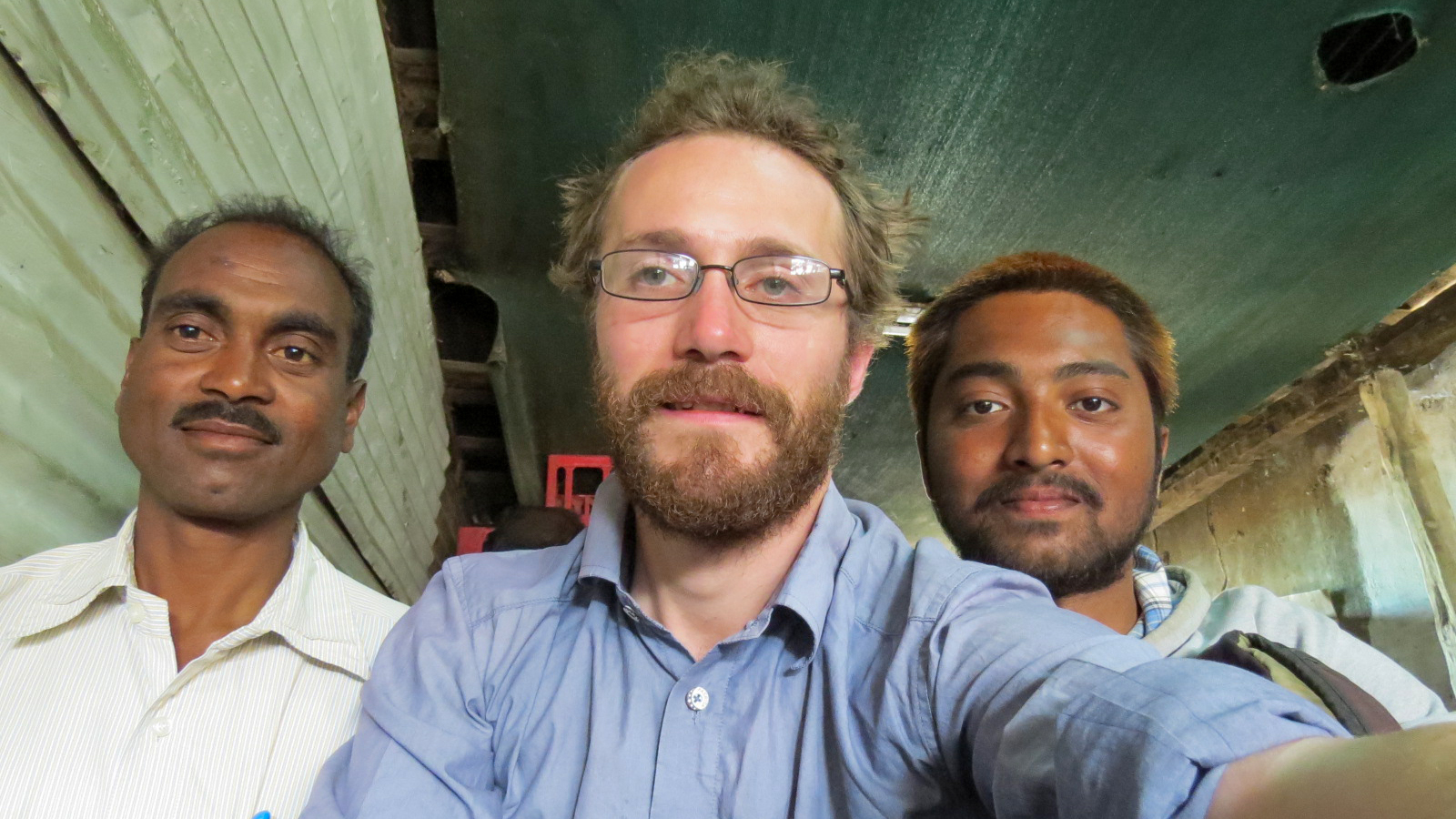
- This event has passed.
Andrew Flachs – Choices and performances in Indian GM cotton fields | GES Colloquium (Zoom)

GES Colloquium Home | Zoom Registration | GES MediaSite | Video Archives | Podcast | @GESCenterNCSU | Newsletter
Choices and performances in Indian GM cotton fields
Speaker: Andrew Flachs, PhD, Assistant Professor of Anthropology at Purdue University
Website | Email | Twitter @DrFlachsophone
Description: Seeds are tools to ask how promising technology including GMOs and organic certification is used, learned, and adapted by farmers with consequences for rural wellbeing and sustainable agriculture.
Abstract
A single seed is more than just the promise of a plant. In rural south India, seeds represent diverging paths toward a sustainable livelihood. Development programs and global agribusiness promote genetically modified seeds and organic certification as a path toward more sustainable cotton production, but these solutions mask a complex web of economic, social, political, and ecological issues that may have consequences as dire as death. In this talk, I’ll explore the anthropological question: what lives are possible on these farms and how do interactions with these technologies influence rural wellbeing and sustainability. By comparing the experiences of farmers engaged with these mutually exclusive visions for the future of agriculture, my research investigates the human responses to global agrarian change. It illuminates the local impact of global changes: the slow, persistent dangers of pesticides, inequalities in rural life, the aspirations of people who grow fibers sent around the world, the place of ecological knowledge in modern agriculture, and even the complex threat of suicide.
Related resources:
- Interactive story map of the cotton commodity chain: https://arcg.is/nOzaD
- Book: Cultivating Knowledge: Biotechnology, Sustainability, and the Human Cost of Cotton Capitalism in India, by Andrew Flachs: https://uapress.arizona.edu/book/cultivating-knowledge
- Flachs, A. (2019), Planting and Performing: Anxiety, Aspiration, and “Scripts” in Telangana Cotton Farming. American Anthropologist, 121: 48-61. doi:10.1111/aman.13175
- , . Farmer knowledge across the commodification spectrum: Rice, cotton, and vegetables in Telangana, India. J Agrar Change. 2019; 19: 614– 634. https://doi.org/10.1111/joac.12295
Speaker Bio
Dr. Andrew Flachs researches food and agriculture systems, exploring genetically modified crops, heirloom seeds, and our own microbiomes. An assistant professor of anthropology at Purdue University, his work among farmers in North America, the Balkans, and South India investigates ecological knowledge and technological change in agricultural systems spanning Cleveland urban gardens and Indian GM cotton fields. His book, “Cultivating Knowledge: Biotechnology, Sustainability, and the Human Cost of Cotton Capitalism in India,” was released in November 2019 with the University of Arizona Press.
WordPress database error: [Unknown column 'wp_tec_occurrences.start_date' in 'SELECT']SELECT SQL_CALC_FOUND_ROWS wp_posts.*, CAST( wp_tec_occurrences.start_date AS DATETIME ) AS event_date
FROM wp_posts LEFT JOIN wp_term_relationships ON (wp_posts.ID = wp_term_relationships.object_id) LEFT JOIN wp_postmeta ON ( wp_posts.ID = wp_postmeta.post_id AND wp_postmeta.meta_key = '_EventHideFromUpcoming' ) LEFT JOIN wp_postmeta AS mt1 ON ( wp_posts.ID = mt1.post_id )
WHERE 1=1 AND wp_posts.ID NOT IN (15050) AND (
wp_term_relationships.term_taxonomy_id IN (521,802)
OR
wp_term_relationships.term_taxonomy_id IN (45,47)
) AND (
wp_postmeta.post_id IS NULL
AND
( mt1.meta_key = '_EventStartDate' AND CAST(mt1.meta_value AS DATETIME) >= '2026-03-03 06:50:48' )
) AND wp_posts.post_type IN ('post', 'page', 'attachment', 'tribe_venue', 'tribe_events', 'tribe_event_series') AND ((wp_posts.post_status = 'publish'))
GROUP BY wp_tec_occurrences.occurrence_id
ORDER BY event_date ASC, wp_posts.post_date ASC
LIMIT 0, 3